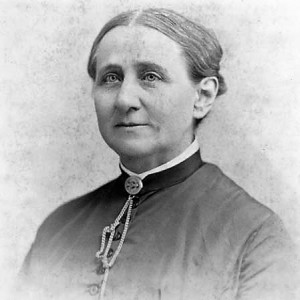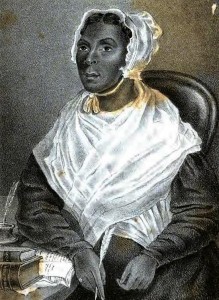 Several years ago, as part of my doctoral dissertation, I had the opportunity to interview a group of young women who had grown up in a Covenant Church that fully affirmed the role of women in all roles of leadership in the church about their identity as women and the role of the pastor. These women were thoughtful and articulate, but had rarely been given an opportunity to talk deeply about these topics. They strongly affirmed the unique strengths of women, seeing them as much more nurturing, caring, and emotionally sensitive, but they also believed women were more passive and too emotional to be effective as leaders, especially during times of crisis. They fully affirmed women as pastors, but felt more comforted when a male pastor offered them care and wondered why any of their peers would ever want to be a pastor. At times they didn’t even recognize their own ambivalence about women pastors and their own identities as women until the words came out of their mouths.
Several years ago, as part of my doctoral dissertation, I had the opportunity to interview a group of young women who had grown up in a Covenant Church that fully affirmed the role of women in all roles of leadership in the church about their identity as women and the role of the pastor. These women were thoughtful and articulate, but had rarely been given an opportunity to talk deeply about these topics. They strongly affirmed the unique strengths of women, seeing them as much more nurturing, caring, and emotionally sensitive, but they also believed women were more passive and too emotional to be effective as leaders, especially during times of crisis. They fully affirmed women as pastors, but felt more comforted when a male pastor offered them care and wondered why any of their peers would ever want to be a pastor. At times they didn’t even recognize their own ambivalence about women pastors and their own identities as women until the words came out of their mouths.
I don’t think their struggle was particularly unique. They are the struggles many women face in a culture that sends such mixed messages about the roles of women, somehow both idealizing and devaluing them at the same time. How can we help women in the church claim a stronger sense of their own worth and dignity? How might we change some of the cultural narratives that shape them so that they might fully embrace who they are as children of God?
One possibility is for us to reframe how we think about traditional gender roles by drawing on the history of evangelical Christian women who tried to change the world.[1]
In the late 19th century, women claimed their universal right as mothers to change to society. They saw their role as leaders drawing on the image of mothers as the guardians of morality and the protectors of families. They started social service agencies, orphanages, mission societies and temperance leagues that gained international reputations. In a study of conservative women from the Presbyterian Church, theologian Mary McClintock Fulkerson found women drawing on similar images. They focused on the unique ability of women to care for those in need, particularly women and children around the globe. Those images gave them strength, power, and a mission within an otherwise restrictive environment.
 In 1819, Jarena Lee is thought to be the first women authorized to preach in the United States. She traveled thousands of miles of foot preaching as an evangelist for the African Methodist Episcopal Church. In the late 1800s, Antoinette Brown was ordained by the Congregationalist church; Catherine Booth was co-founding the Salvation Army; and Amanda Berry Smith, a former slave, was leading evangelistic crusades in the United States, England, India, and West Africa.
In 1819, Jarena Lee is thought to be the first women authorized to preach in the United States. She traveled thousands of miles of foot preaching as an evangelist for the African Methodist Episcopal Church. In the late 1800s, Antoinette Brown was ordained by the Congregationalist church; Catherine Booth was co-founding the Salvation Army; and Amanda Berry Smith, a former slave, was leading evangelistic crusades in the United States, England, India, and West Africa.
These women, both in the 19th century and in contemporary conservative churches, often created their own separate organizations, parallel to existing structures and within these parallel organizations they were able to lead boldly, mobilize other women, change society, and serve God globally. The Women’s Christian Temperance Union was a powerful force in the 19th century that fought to restrict the use of alcohol in society because of its damaging effects on women and children and the Presbyterian women missions organizations are but one example of the many ways Christian women have served the world for Christ.
In the Evangelical Covenant Church, women also created their own independent structure. Women Ministries originally functioned entirely independent from denominational structures.[2] For many years, Women Ministries was known for focusing on the role of women in the family and global missions, but they have always had that same desire to change the world. Recently they have been extending their call to care for women and children beyond the home into the world through advocacy around issues such as domestic violence and human trafficking.[3]
Women often hear mixed messages about their worth from the world around them. They need to hear the stories of women who were strong and courageous, who embraced their roles as wives, mothers, and daughters of God as a call to change the world around them, to witness, preach, and fight for social justice. They need us to talk about these women in our sermons and our Sunday School classes, to celebrate them as we talk about history and heroes. They need to see the pictures of these women up on the walls of our schools and churches.
And, they need time and space to talk about what it means to be a women, to critically reflect on the messages they are hearing, to discuss how they are navigating the various messages they are receiving. And they need to be toldWOMEN WHO CHANGED THE WORLD over and over again that they have been created as women fully in the image of God, called to serve, to lead, to witness, and to change the world for good of the kingdom.
[1] The following draws significantly on my dissertation, “Called to the Image? How Discourses about Gender and Ministry Shape the Potential for Young Women to Develop A Pastoral Identity,” Garrett-Evangelical Theological Seminary, 2010.
[2] Women Ministries of the Evangelical Covenant Church does not appear as part of the denominational constitution until 1978 when it is first listed under the administrative boards of the denomination as the “Board of Women’s Work.” (The Evangelical Covenant Church, Covenant Yearbook 1978, Chicago, IL: The Evangelical Covenant Church of America, 1978), 356-357. Women Ministries is currently listed along with the other denominational ministries in the constitution and comes under the governance of the Annual Meeting of the ECC. However, it is the only denominational ministry that still bears its own administrative costs (The Evangelical Covenant Church, Covenant Yearbook, 2008-2009 edition, Chicago, IL: The Evangelical Covenant Church of America, 2009), 372-373.
[3] Women Ministries launched Advocacy for Victims of Abuse (AVA) in 2004 and in partnership with the Department of Christian Formation and the Department of Compassion and Justice launched Break the Chains, a program to combat human trafficking, in 2008. See Women Ministries, “Women Ministries Welcome,” The Evangelical Covenant Church, www.covchurch.org/women, Accessed 24 October 2009.


Good writing, Jo Ann!
Appreciated the historical references and contributions cited. So much of present reality is built upon work done by long forgotten or little acknowledged forebears, especially women.
dz
Report This Comment
05.19.16 at 5:48 pm
Jo Ann – There is still so much work to be done for women to first accept God’s calling and then to have opportunity to share their gifts with those they have been called to lead and serve. We often forget the deep sacrifice of those who went first and opened the door for so many of us to follow. Thanks for sharing all of your research with us.
Report This Comment
05.27.16 at 1:53 pm